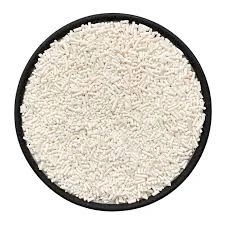
monosodium l glutamate
The Role of Monosodium L-Glutamate in Modern Cuisine
Monosodium L-glutamate, commonly known as MSG, is a flavor enhancer that has become a staple ingredient in various cuisines around the world. While it has been a subject of debate and controversy regarding its health implications, MSG’s profound impact on the culinary landscape is undeniable.
The Role of Monosodium L-Glutamate in Modern Cuisine
Primarily used in Asian cuisine, MSG has been essential in preparing traditional dishes such as ramen, soups, and stir-fries. The additive enhances the overall flavor experience, allowing the natural tastes of ingredients to shine through while providing depth and richness. As a result, MSG has also found its way into processed foods, snacks, and frozen meals, where it helps to compensate for flavor loss during production.
monosodium l glutamate

Despite its popularity, MSG has faced scrutiny over the years. The term Chinese Restaurant Syndrome emerged in the late 1960s when some individuals reported adverse reactions after consuming MSG-laden meals. Symptoms ranged from headaches to flushing; however, subsequent scientific research has largely debunked the myth that MSG is harmful in the amounts typically consumed. Regulatory agencies, including the Food and Drug Administration (FDA) and the World Health Organization (WHO), have classified MSG as safe. They acknowledge that while some individuals may have sensitivity to the substance, it is not inherently harmful to the majority of the population.
The ongoing debate surrounding MSG has led to a growing trend of clean label products, where companies market their food as free from artificial additives, including MSG. Consumers are increasingly looking for transparency in food ingredients, often opting for products marketed as natural. This shift presents a challenge for chefs and food manufacturers seeking to enhance flavors without the use of MSG. However, it has also spurred innovation in flavor development using alternative ingredients such as natural yeast extracts, hydrolyzed vegetable proteins, and other umami-rich substances.
Culinary professionals recognize the balance between flavor enhancement and health perceptions. Many chefs are now experimenting with natural sources of umami, like miso, soy sauce, and fermented foods, to provide depth without relying solely on MSG. This approach not only caters to health-conscious consumers but also fosters creativity in the kitchen as chefs explore the diverse offerings of umami-rich ingredients.
In conclusion, monosodium L-glutamate has played a significant role in shaping modern cuisine. While it continues to be a topic of discussion regarding its safety and health implications, its ability to enhance flavors is an asset not easily replaced. Chefs and food manufacturers are tasked with navigating consumer preferences, striving to provide delicious, wholesome food while respecting the natural flavors of ingredients. As culinary science advances, the exploration of umami will undoubtedly continue to influence gastronomy and food innovation for years to come.
-
Aluminum Hydroxide: Quality Gels & Dried Gel AntacidNewsAug.31,2025
-
Buy High-Quality Trichloroisocyanuric Acid for Sale | TCCA 90% SupplierNewsAug.30,2025
-
Pure Sodium Dichloroisocyanurate Dihydrate | Powerful DisinfectantNewsAug.29,2025
-
Industrial Chemicals: Quality & Purity for Every IndustryNewsAug.28,2025
-
Nitrile Rubber Honoring Strict Production StandardsNewsAug.22,2025
-
Aspartame Ingredients Honoring Food Safety ValuesNewsAug.22,2025
-
Fertilizer for Balanced Plant NutritionNewsAug.22,2025
Hebei Tenger Chemical Technology Co., Ltd. focuses on the chemical industry and is committed to the export service of chemical raw materials.
-

view more DiethanolisopropanolamineIn the ever-growing field of chemical solutions, diethanolisopropanolamine (DEIPA) stands out as a versatile and important compound. Due to its unique chemical structure and properties, DEIPA is of interest to various industries including construction, personal care, and agriculture. -

view more TriisopropanolamineTriisopropanolamine (TIPA) alkanol amine substance, is a kind of alcohol amine compound with amino and alcohol hydroxyl, and because of its molecules contains both amino and hydroxyl. -

view more Tetramethyl Thiuram DisulfideTetramethyl thiuram disulfide, also known as TMTD, is a white to light-yellow powder with a distinct sulfur-like odor. It is soluble in organic solvents such as benzene, acetone, and ethyl acetate, making it highly versatile for use in different formulations. TMTD is known for its excellent vulcanization acceleration properties, which makes it a key ingredient in the production of rubber products. Additionally, it acts as an effective fungicide and bactericide, making it valuable in agricultural applications. Its high purity and stability ensure consistent performance, making it a preferred choice for manufacturers across various industries.





